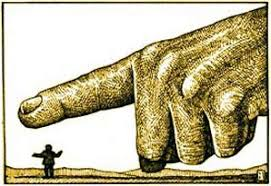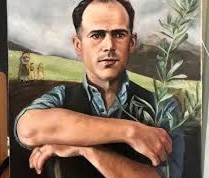
Why Bad Things Happen
My brother-in-law, Jose Mario Botero, recently took a terrible fall down a spiraling, steel staircase in his home in Medellín, Colombia. It resulted in a massive head injury, and he has been in a coma since. His prognosis is uncertain.
Mario, as he is called by family and friends, recently turned 70 years old. He and his wife, Martha, retired just a few years ago and were beginning to enjoy leisure, travel and time with family. Then, tragedy struck.
Why, some of us ask, did God allow this? For that matter, why does God allow the daily tragic occurrences that can happen to all of us? The terrible accidents, suicides, murders, wars, the bitterness among people? If God is the all-loving Creator claimed by religious people, why do we have so much trouble? Why didn’t God simply create a better world?
Greatest Obstacle to Faith?
I’ve written about this subject many times, but I believe the issue is the greatest obstacle to faith for many people and deserves further discussion.
First, no one knows the precise answer to these questions, which can be summed up in in the title of perhaps the most famous book on the issue, “Why Do Bad Things Happen to Good People?” First published in 1981 by Rabbi Harold Kushner, it is described by an online bookseller as a classic, a “straightforward, elegant contemplation of the doubts and fears that arise when tragedy strikes.” I highly recommend it.
But although definitive answers may elude us, Kushner, who died this past April, and other scholars, thinkers and writers have a lot to say on the subject that deserves our attention.
One such is Richard Leonard, an Australian Jesuit priest who wrote a book I read several years ago. It has the irreverent title, “Where the Hell Is God?” His disclaimer in the book’s preface is that “on this side of the grave, we just do not know where or how God fits in regard to the suffering of the world.”
Leonard’s book results from personal experience, the tragic auto accident of his sister, Tracey, a young nurse who had worked among the poor in India and the Aborigines in Australia. The accident left her mostly paralyzed.
“Where the Hell Is God?”
In the hospital after Tracey’s injury, Leonard’s mother, who was widowed at age 32, is angry. As she paced, she asked: “How could God do this to Tracey?” “How could God do this to us?” “What more does God want from me in this life?” and, “Where the hell is God?”
Leonard’s own reaction was empathetic but defiant. If anyone can prove that God punished Tracey or her family, or even “if this was God’s active will, I am leaving the priesthood, the Jesuits, and the church. I don’t know that God, I don’t want to serve that God, and I don’t want to be that God’s representative in the world.”
Leonard writes that despite the absence of definitive answers to the question of God’s apparent indifference, there are lots of opinions about it, including those of people of faith. Among the most dissatisfying, perhaps, is “God only sends the biggest crosses to those who can bear them.” Writes Leonard: “if this line is true, then we should all be on our knees morning, noon and night with only one prayer: “I am a wimp. I am a wimp, O God. Do not consider me strong.”
Places God Outside Our Lives
Other opinions include, “It’s all a mystery;” “My ways are not your ways;” and “Only in heaven will we find out God’s plan.” There may be truth in these sayings, writes Leonard, but the problem is that they place God “outside our human drama, as an all-knowing and yet uncaring observer to the action of our lives.”
Those searching for God in the Christian tradition have a particular reason for hope in the face of tragedy and the lack of satisfying answers to why God appears to allow evil in the world.
“The life, death, and resurrection of Jesus,” Leonard writes, “show us that God has grafted himself onto human history in the most intimate of ways. We do not believe and love an aloof being who revels in mystery and goes AWOL when the action turns tough in our lives. The incarnation surely shows us that God is committed to being a participant in the human adventure in all its complexity and pain.”



